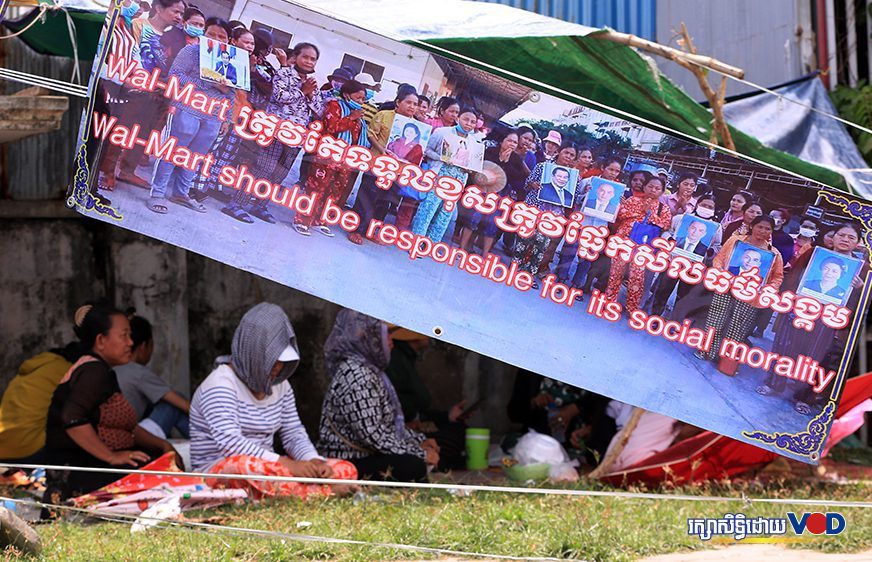Workers seeking compensation from the shuttered Canteran Apparel garment factory have moved their tents to the sidewalk on Veng Sreng Blvd. after they were made to leave the factory compound, they said.
Sann Sopha, the factory’s union president, said building owners had chased out workers from staying and sleeping within the factory compound on Monday, so they had set up tents on the sidewalk.
Sopha called on the government to intervene to prevent “the screaming of protest, the screaming of hunger and screaming for justice.”
Canteran management began moving machinery out of the factory in April, sparking concerns from the union. The factory employed around 1,000 workers before its closure, and about 300 continue to protest, seeking what they say is due compensation.
The workers have since been taking turns standing guard at Canteran, in Pur Senchey’s Choam Chao I, for two months to prevent the removal of more valuable equipment from inside that could help pay for their compensation.
They have alleged that some equipment had already been taken to a nearby factory, Quality Textiles, which they believe has the same management. The Garments Manufacturers Association in Cambodia says Quality Textiles employs around 750 in producing sleepwear.
Another worker, Chuon Phan, 56, who worked at Canteran for 14 years, said protesters have complained to the district authorities, Labor Ministry and U.S. Embassy but there was no progress.
A representative for the building owners, Taing Chhaingsrun, denied that the workers had been chased out, while Labor Ministry disputes resolution deputy Vong Sovann said he didn’t know whether the doors at the compound had been closed on the protesters. But the ministry was looking for the factory’s management to take responsibility for the compensation claims, Sovann said.
Suth Chet, a Coalition Union of Movement of Workers (CUMW) official monitoring the protest, said it should not be difficult to track down the factory management, and alleged there could be collusion with authorities.
CUMW president Pav Sina added that factory owners escaping without paying compensation to workers was a recurring problem, and the practice needed to be stamped out.













